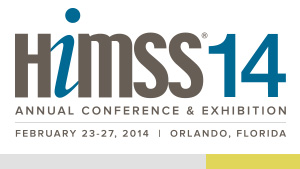
I attended the annual Healthcare Information and Management Systems Society (HIMSS) 2014 conference this week along with over 35,000 attendees and 1,200 vendors participating from all over the world. It was clear that this is the true mecca of healthcare information technology. From big data to data analytics and predictive modeling, data integration/interoperability, intelligent hospital, to mobile health and telemedicine, the conference represents the best and the newest technology available in the market that is rapidly transforming the healthcare landscape. New tools are available to help patients connect with doctors virtually, manage prescriptions through mobile phones, match with the right doctor based on the patient's specialized needs, and manage health using web portals and digital devices.
In our "Foresight for 2014," Sedgwick forecasted that technological advancements in healthcare delivery are expected to increase rapidly throughout the year. In fact, we predicted that devices such as Google Glass will become part of delivering care and one HIMSS vendor called Pristine is already developing the next generation of telehealth communication solutions built around the device. Numerous start-ups showcased their new integrated solutions that enable multiple providers to share and exchange data, focusing on health and wellness management, and reducing hospital admissions that drive the cost of care. One of those was OneReachHealth that provides advanced integration of medical information using the phone and texting to improve patient engagement – and is HIPAA compliant.
In our industry, the practical applications of these new integrated solutions can help provide immediate and appropriate care for an injured worker while keeping the overall healthcare cost down. Integrated healthcare solutions are tied to interoperability, which is the ability of multiple data systems to communicate with each other and share data. This technology is the backbone of a new model of care where multiple providers share patient data, reduce errors, minimize hospital visits, and focus on the patient's overall health and wellness. The accountable care model relies on coordinated care from each provider to manage the patient's health. Accumulated healthcare savings is then shared among the group. Some of the start-up companies at the conference focusing and supporting the Accountable Care Organization (ACO) model of care include ACOMS+, a population health and disease management ACO vendor called Self Care Catalyst, Caresync, and Healthloop, a cloud follow-up visit platform available to providers.
What are your thoughts on the use and benefits of emerging technology in surveying the needs of ill or injured workers? Join my LinkedIn group, Transforming Healthcare for Tomorrow, to be part of ongoing conversations on health tech and how it is changing our industry.

Kimberly George, SVP, Senior Healthcare Advisor